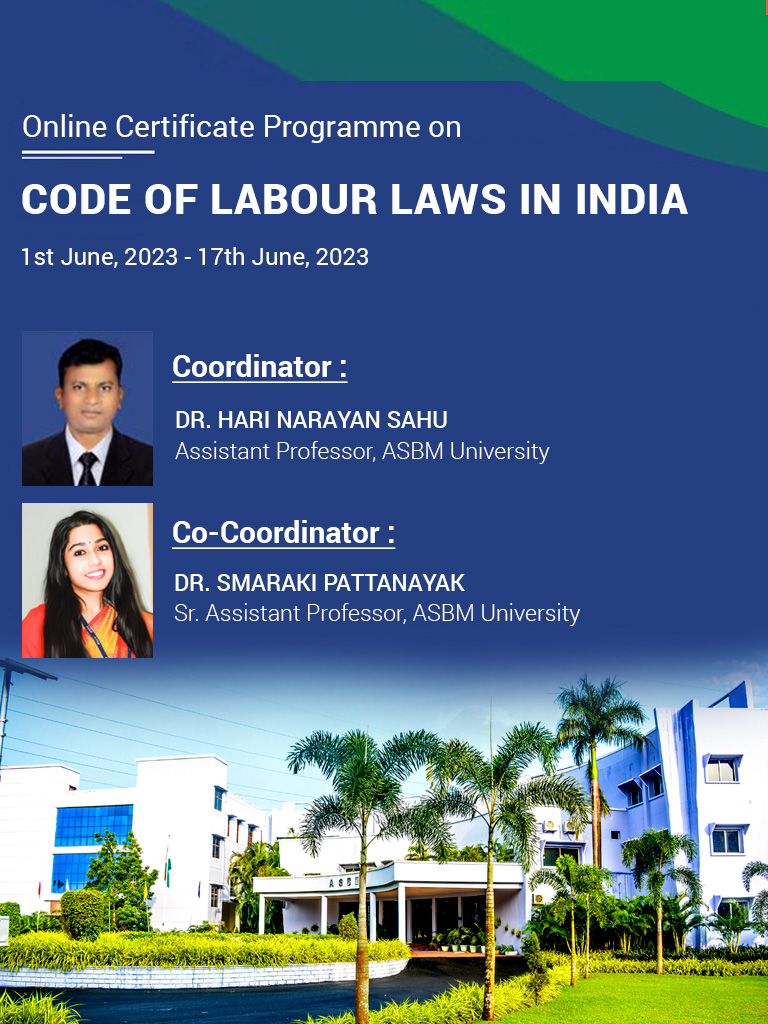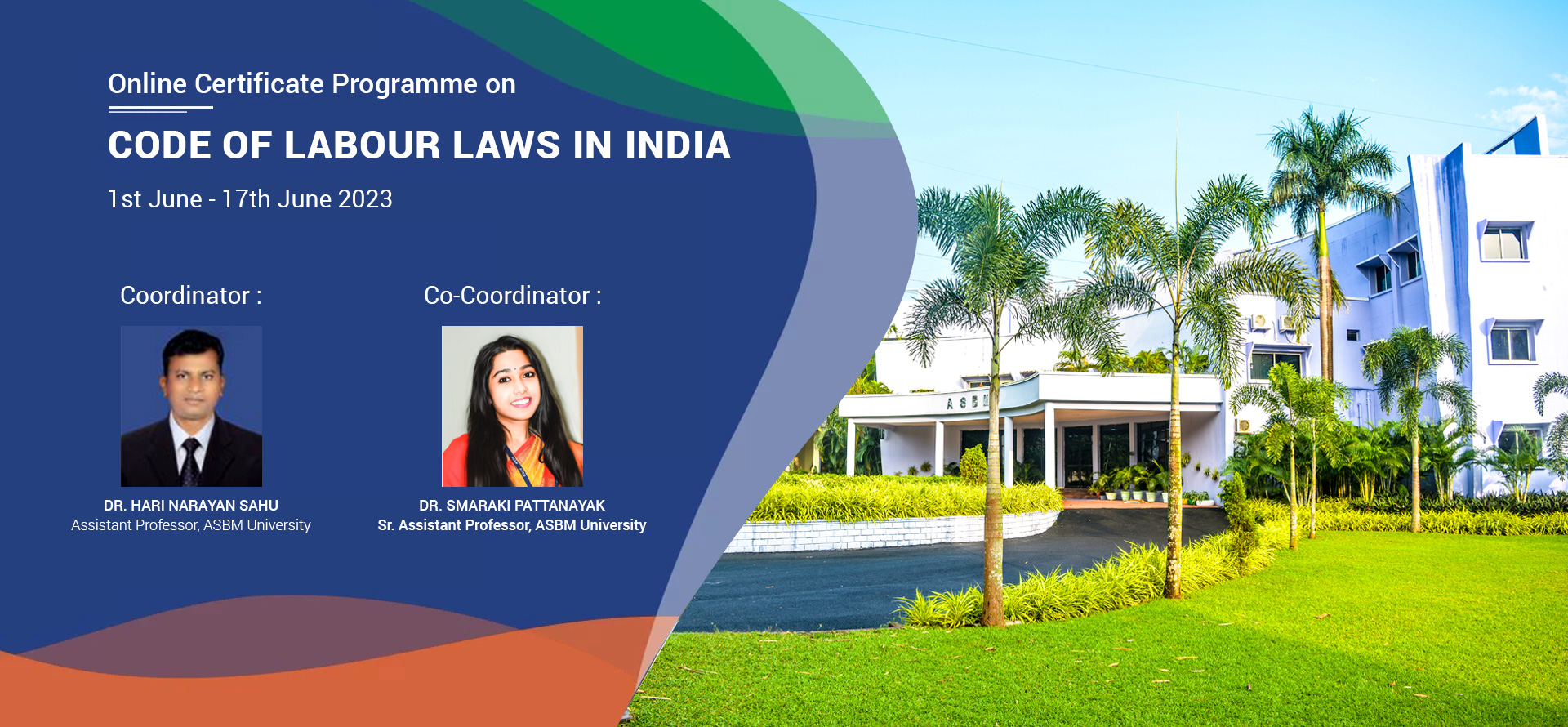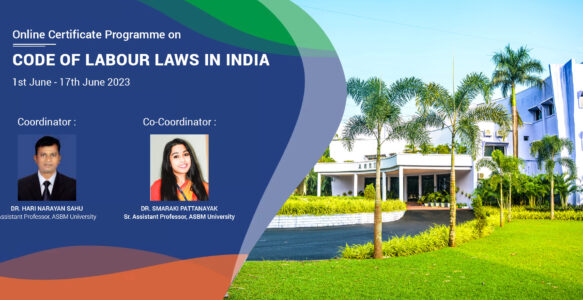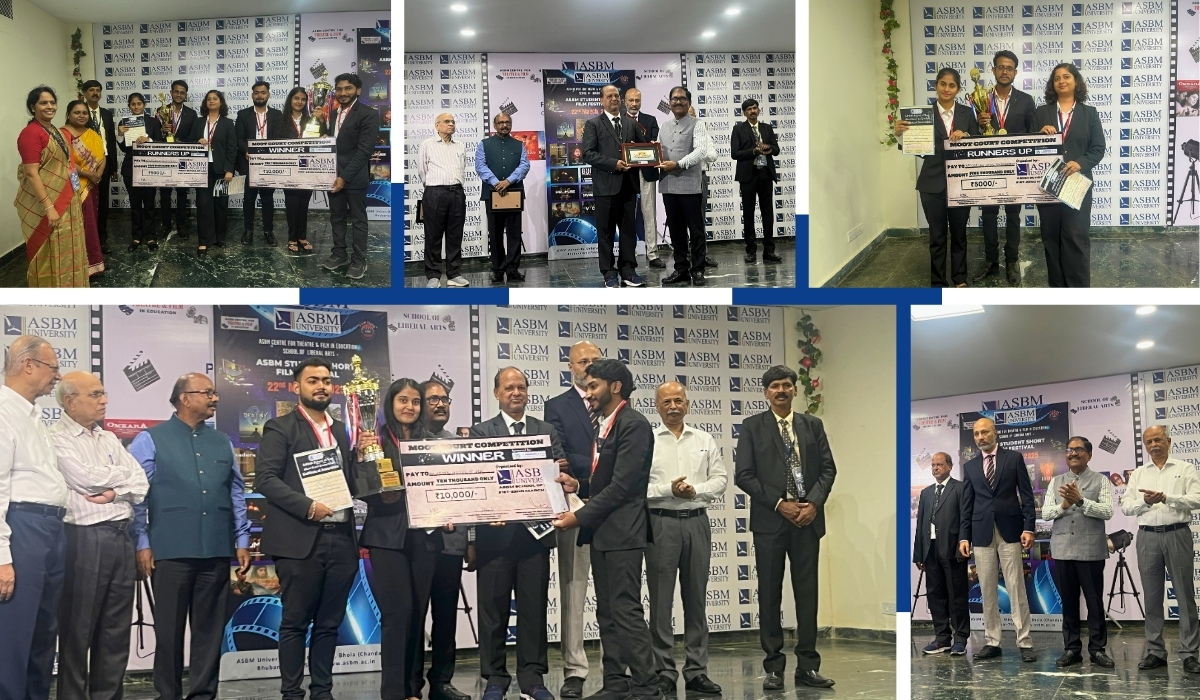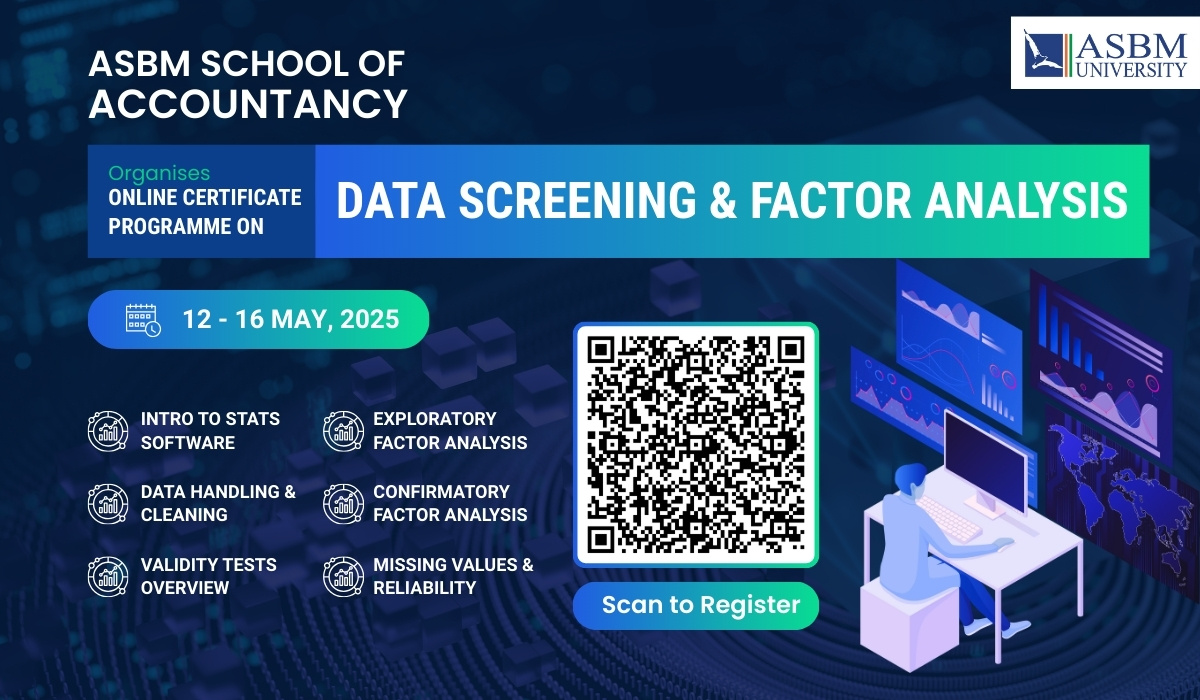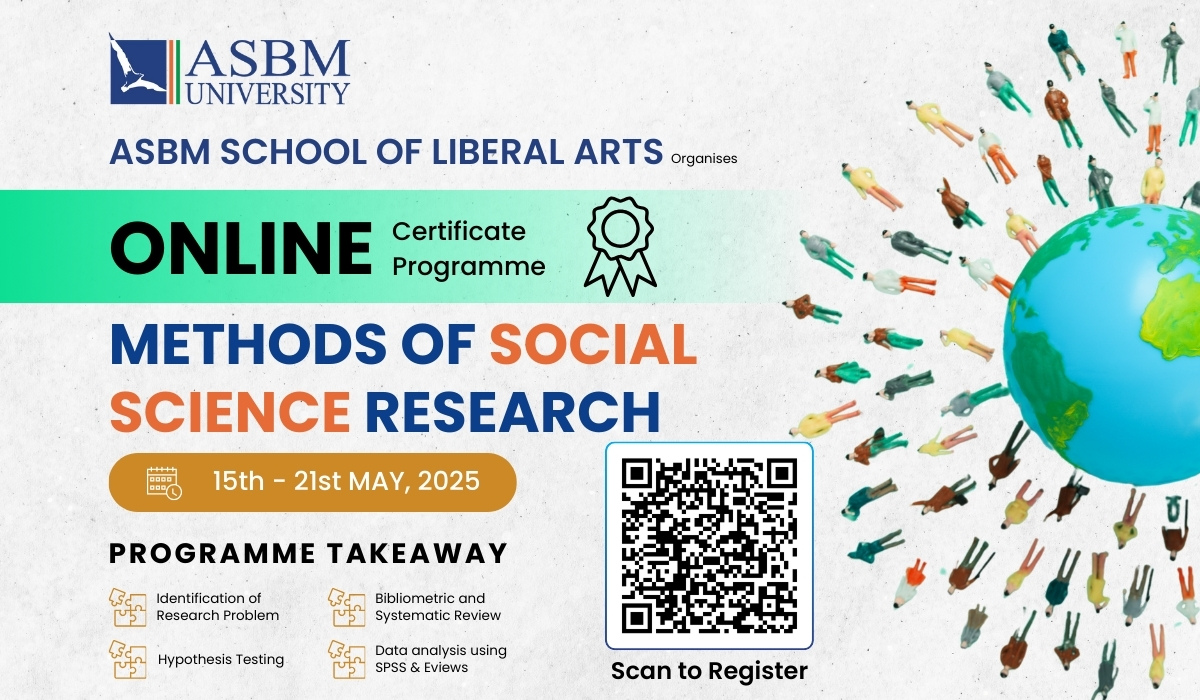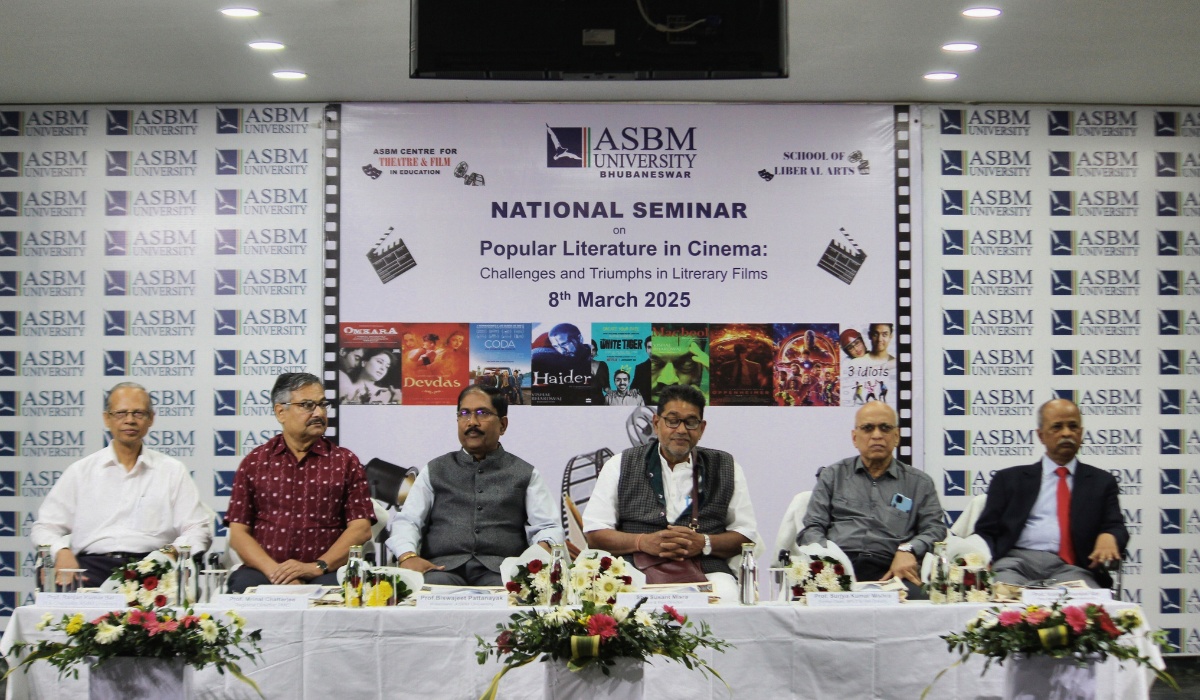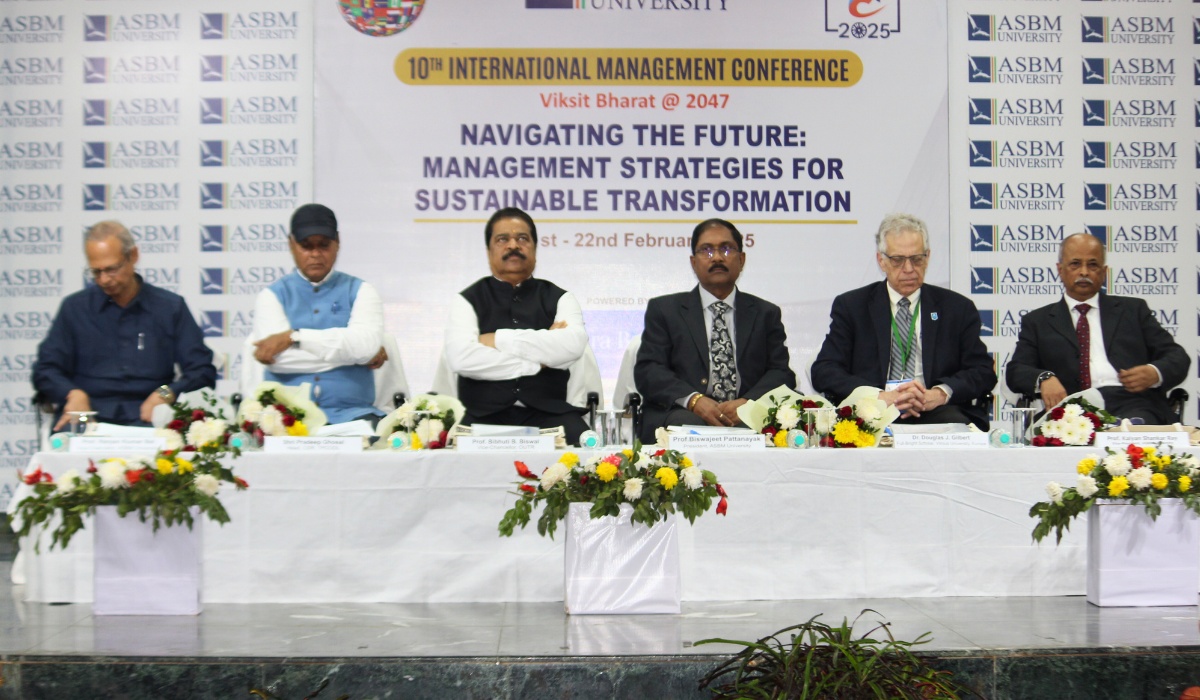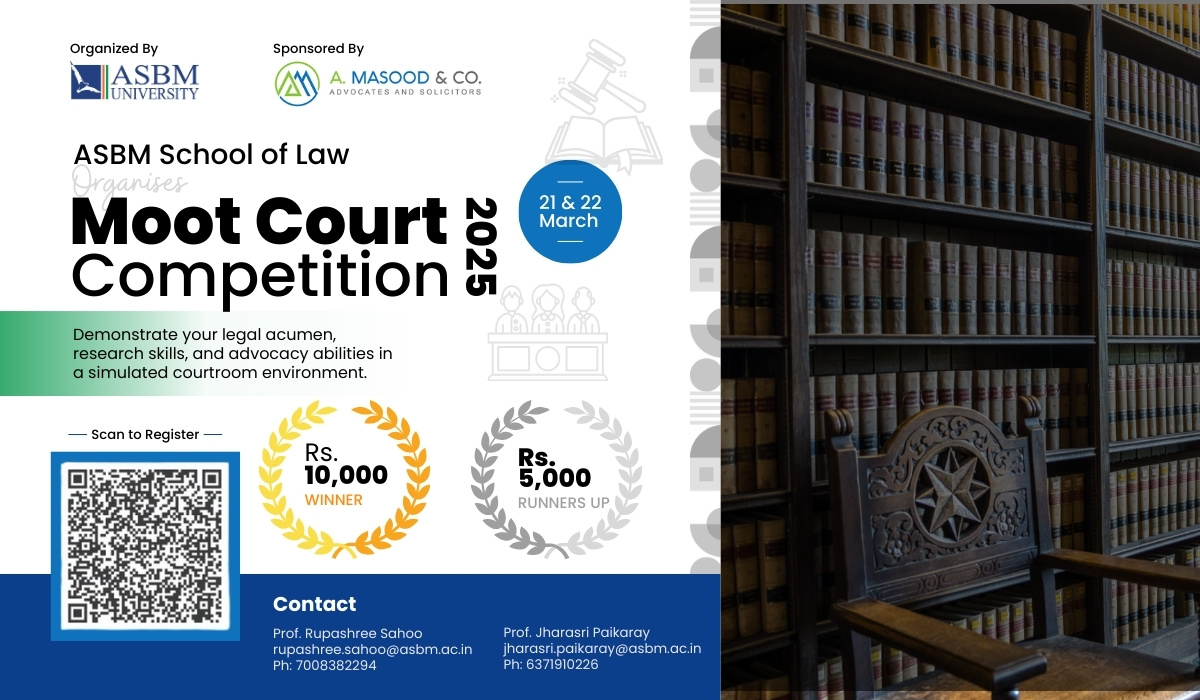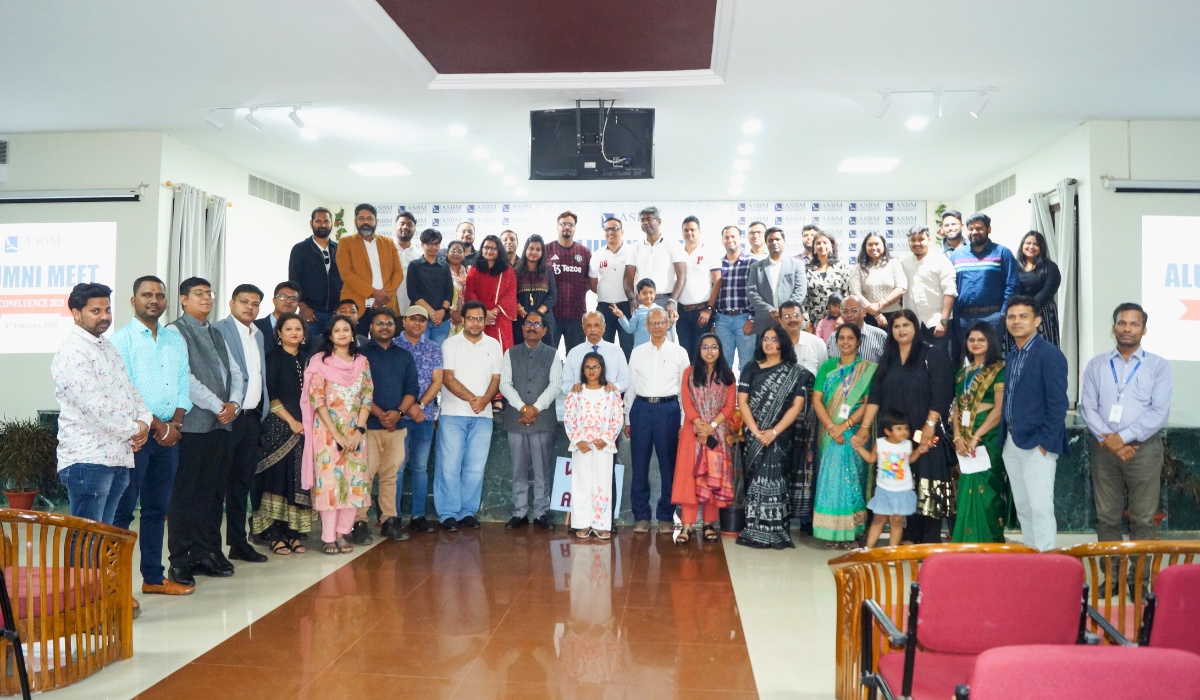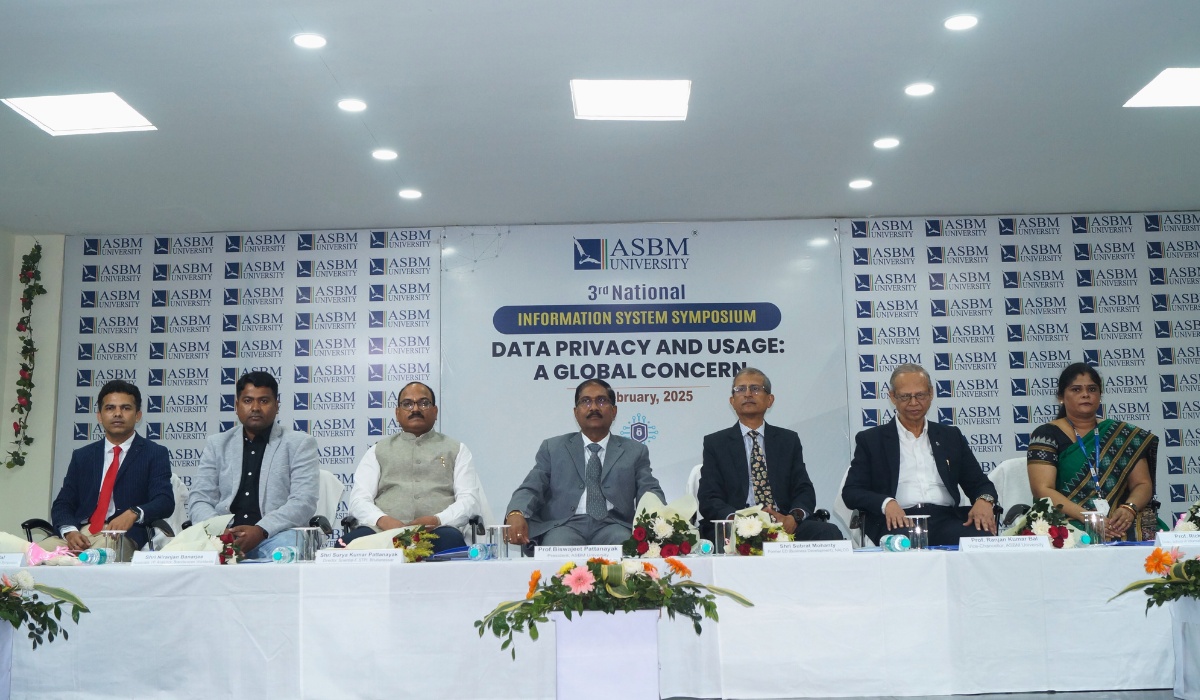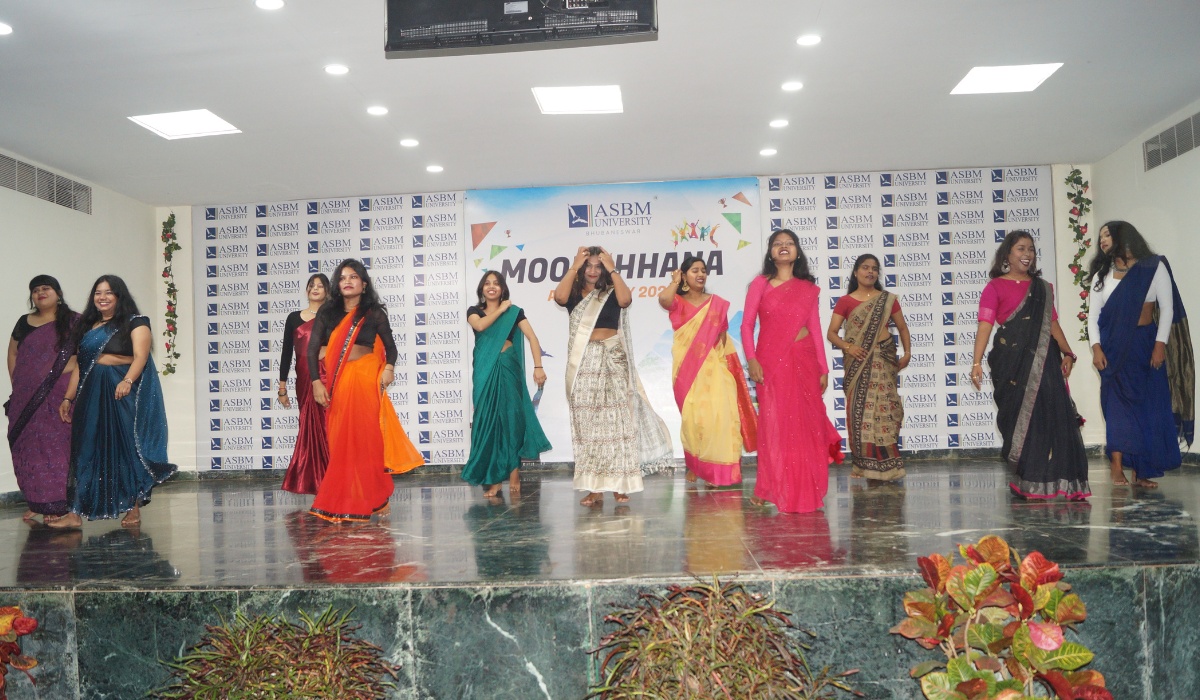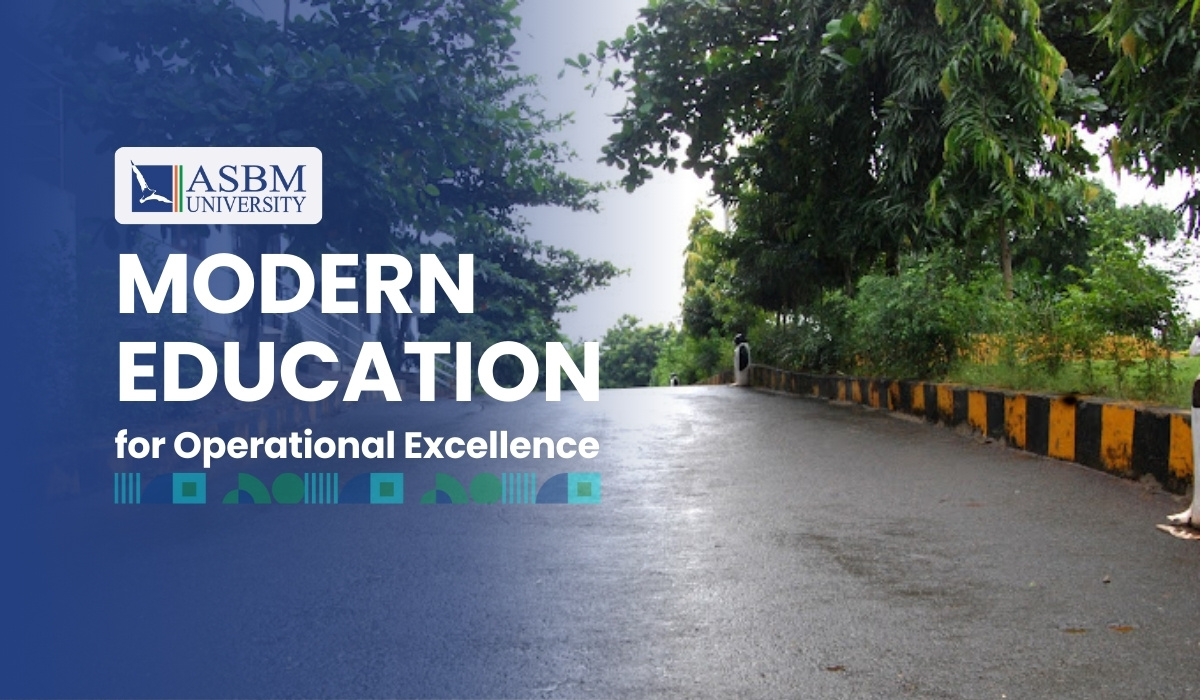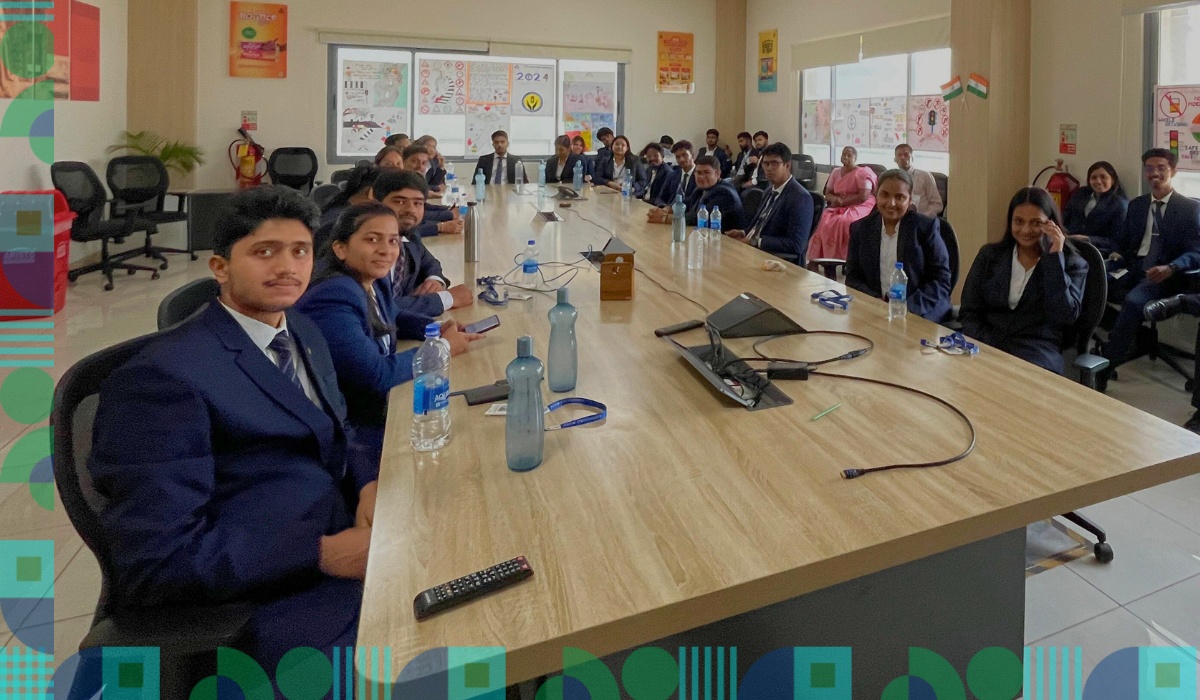THE PROGRAMME
A labour code, (also called a code of labour laws) is a codification of labour laws in legislative form. One of the first labour codes was introduced in 1918 in the Russian Soviet Federative Socialist Republic, as a legal framework underlying the requirement to ensure the right to work declared in the first Soviet Constitution. In the aftermath of post-war the labour codes basing upon the same set of social guarantees were intro- duced in German Democratic Republic, People’s Republic of Hungary, People’s Republic of Poland and the other socialist countries in Central and Eastern Europe. Presently the Labour Code exists in Russian Federation and in some other former Soviet Republics. In Canada the Labour Code (R.S., 1985, c. L-2) was adopted in 1985 superseding the Industrial Relations and Disputes Investigation Act of 1948. Parliament of India passed four labour codes in 2019 and 2020 sessions. Together, these four codes merged 44 existing labour laws. These Codes are Code on Wages (2019), Code on Industrial Relations (2020), Code on Social Security (2020), Code on Occupational Safety and Health and Working Conditions (2020) respectively.
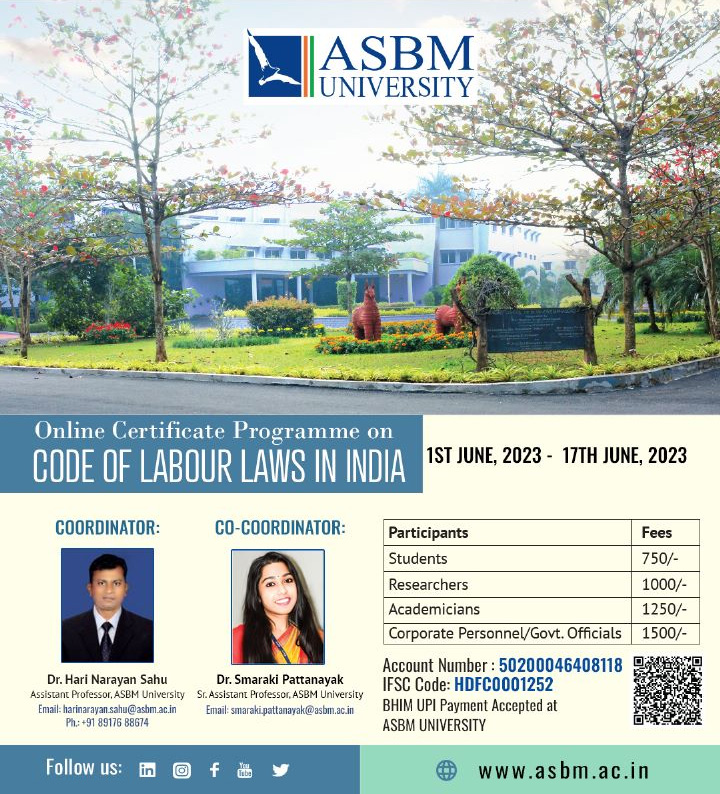
Why we should learn it?
- The new labour codes are considered as positive by many businesses as they simplify and streamline the current labour laws, which are seen as complex and archaic. The new regulations are also business-friendly, providing greater flexibility to businesses in hiring and firing workers and setting wages.
- The new labour law offers more specific regulations, replacing many existing labour laws that affected problems since there were often too many sections.
- The new labour codes promote harmonious industrial relations to achieve higher productivity and employment.
- They primarily establish a transparent and straightforward mechanism to reduce to one registration, one license, and one return for all four codes in a particular way. The Officer under the modified labour legislation is required.
Programme Highlights:
- Comprehensive Course Coverage.
- 45 Hours of live instructor-led virtual classroom sessions.
- Practical Hands-on Sessions by Internationally Acclaimed Academicians, Industry Experts, HR Practitioners and Labour & Employment Dept. GOI officials.
- Weekend Classes (i. e only on Fridays & Saturdays).
- ASBM University Certification
Comprehensive Course Coverage:
- Introduction to Industrial Labour Codes (Online).
- Code on Industrial Relations (Online).
- Code on Wages (Online).
- Code on Social Security (Online).
- Code on Occupational Safety, Health & Working Conditions (Online)
Training Module
| Date | Session | Theme | Duration |
|---|---|---|---|
| 01.06.2023 | Inaugural Session | 2 hours | |
| 02.06.2023 | Technical Session-I | Introduction to Industrial Labour Codes | 6 hours |
| 03.06.2023 | Technical Session-II | Code on Industrial Relations | 8 hours |
| 09.06.2023 | Technical Session-III | Code on Wages | 8 hours |
| 10.06.2023 | Technical Session-IV | Code on Social Security | 8 hours |
| 16.06.2023 | Technical Session-V | Code on Occupational Safety, Health & Working Conditions | 8 hours |
| 17.06.2023 | Technical Session-VI | Panel Discussion and Valedictory | 5 hours |
| Total Hours- 45 hours | |||
| (Note: 45 hours including Case Studies & Assignments) | |||
CHIEF SPEAKERS

Dr. Satyabrata Patro
Sr. Assistant Professor, P.G. Dept. of IR & PM,
Berhampur University

Prof. Bhabani Prasad Rath
Adjunct Professor, KIIT School of Law,
KIIT University

Dr. Shisir Kumar Sethi
Labour Enforcement Officer (Central)
at Ministry of Labour & Employment,
Govt. of India

Dr. Binaya Kumar Das
Professor & Dean, School of Law
ASBM University
PROGRAMME OUTCOME:
- To understand the regulations pertaining to hiring and firing and lay offs without Govt. approval.
- To identify and reduce the number of regulations one must comply with.
- To understand regarding minimum wage payments, overtime pay and other benefits in order to safeguard the interest of the workers.
- To understand regulations on pensions, health insurance, and other benefits.
- To understand regulations pertaining to safe working conditions.
Who should attend it?
- Students
- Researchers
- Academicians
- Corporate Personnel/Govt. Officials
Moot Court Competition Held at ASBM University
Data Screening and Factor Analysis – Online Certification Programme
Methods of Social Science Research – Online Certification Programme
2nd National Symposium on “Popular Literature in Cinema” Successfully Inaugurated at ASBM University
ASBM University Hosts IMCon’25: Global Experts Discuss Sustainable Management Strategies
ASBM School of Law to Host Its First Moot Court Competition in March 2025
ASBM University Hosts Grand Alumni Meet – Confluence 2025
ASBM University to Host National Hackathon Event 2025 on 1st March
ASBM University Hosts 3rd National Information System Symposium on Data Privacy and Usage
Moorchhana- The Intra University Talent Recognition Initiative
Online Certification Programme on Methods of Social Science Research
- ASBM University
Testimonials

Janmejaya Sahoo

Satya Ranjan Thatoi

Manisha Panda

Satyabrata Samal

Rajesh Kumar Das

Subrat Barla

Anmol Acharya

Jaya Satpathy

Amlan Jena

Sabyasachi Nanda
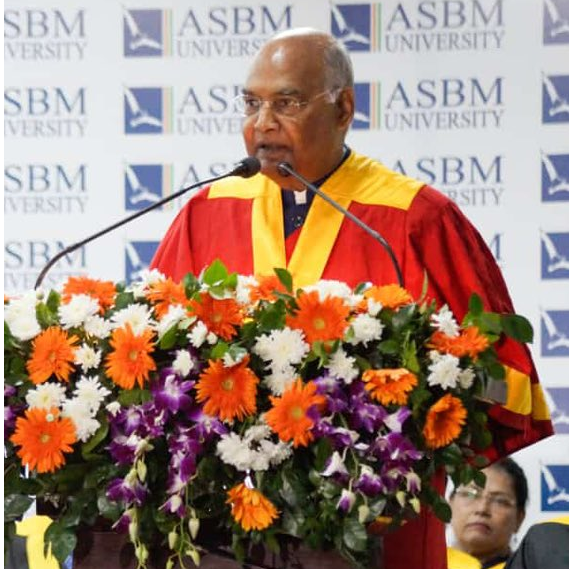
The true sunrise in management education has just begun.
Hon’ble Shri Ram Nath Kovind

This institution is doing a wonderful work in making our country strong in economic and other fields. The new generation of mangers is the future of this country; and they would be the agents of desirable change.
Her Excellency, Smt. Pratibha Devisingh Patil

Best wishes for the growth of ASBM University as an institution of excellence.
Ambassador Lalit Mansingh

Superb conference; Wishing ASBM great success in your endeavor to develop talent in India.
Dr. Ong Fon Sim

I am very honoured to have been a part of the learning process for ASBM. It is an outstanding Institution with a quality mission, strong academic Programmes and the spirit of innovation.
Dr. Craig Mitchell Brewer

Wonderful infrastructure, great administrators and faculty; A truly innovative and forward looking Institution.
Dr. Alby Anand Kurian

Have seen this great institution grow over the last few years with a great leader and an outstanding faculty; many more great things to come.
Mr. Richard Rekhy

ASBM has over a decade and half blossomed into an institution of repute attracting students from both near and far. It is well infrastructured and well staffed with clear vision and mission.
Dr. Ashok Dalwai

Privileged to participate in ASBM conference; Great to be among informed students and faculty.
Mr. Jugal Kishore Mohapatra, IAS (Retd.)

Wonderful experience in a world class seminar in ASBM which is the demand of the time.
Prof. Lutfar Rahaman

It is wonderful to return to ASBM and see progress and the way the institution has grown in size and quality.
Dr. Bijoy K. Sahoo

It was a great experience to visit the campus of ASBM. Prof. Pattanayak is a great visionary, meticulous planner and good executor. I am glad to be associated with him and the Institute.
Mr. Mahendra Agarwal

It is a real pleasure to see the facilities and the talent of the faculty.
Mr. Rakesh Sharma

Arijit Brahma

Suvigya Singh Vats

Mousumi Roy

Santosh Bhubaneswar Pattnaik

Richa Prakash

Anchalpriya Dalai

Ansuman Patra

Upasna Das

Sagar Das

Ansuman Panda

Sushmi Ghosh

Deepak Mishra

Pritish Uttaray

Ruqshar Neha

Rohit Kumar Tripathy

Nishant Kumar

Sampurna Sangiri

Sweta Shilpa Muni

Ch. Debasis Patro

Abhipsa Mishra

Tattwadarshi Das

Jiwanjyoti Das

Ayushman Ray

Sudip Mandal

Souryabrala Nayak

Chayanika Hazra

Smruti Sudha Bhanja

Ankita Parida

Parthasarathi Patra

Amit Pathak

Swagatika Dash

Ayesha Boitai

Rajeshkanta Rout

Priyadarshini Samantaray

Jeetendra Kumar Das

Shreyasi Saha

Tanya Mazumdar

Isha Singh

Suryaketan Panda

Madhusmita Acharya

Sarthak Satapathy

Babloo Nayak

Swostik Rout

Dipanwita Ghosh

Debabrata Priyadarshi

Soumyakanta Lenka

Garima Milind

Debak Kumar Das

Neha Jha

Shalini Sinha

Adarsh kumar Gupta

Sumit Rana
Placement Partners
Blogs
This section plays a significant role in a student’s life. Our blog provides detailed information about the latest statistics & survey, trending news in multiple sectors, ongoing updates in the industry and upcoming complexities in the market.
To know more click on…..

